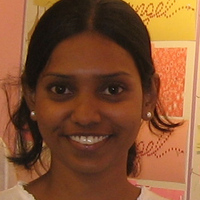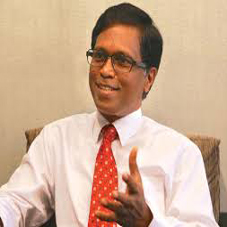Nisanka Shows How to Make Your Fashion Business Fly !
 |
Success stories have always been the cornerstone for entrepreneurial studies. Fashion is no different. However, while entrepreneurship and entrepreneurial studies are much talked-about in today’s society, it is questionable whether the knowledge imparted by learning institutes is aligned with differing geographies and industries. |  Prof. A. Jayawardane |
|
Nisanka Kusumsiri, a passionate fan of fashion entrepreneurship, or more simply speaking - the fashion business, says, “there is still a lack of knowledge for a Sri Lankan with an entrepreneurial mindset, on how one can build a fashion-based business”. Ms. Kusumsiri, a Visakhian during her secondary education, draws strength from experience in both the industry and the academia. She has a degree from the Department of Textiles and Clothing Technology at the University of Moratuwa and a Postgraduate Diploma in Marketing from the Chartered Institute of Marketing(CIM). She has also worked in the fashion industry for a few years before she joined the University of Moratuwa in 2008 as a Lecturer. In her efforts to follow up her claim, Ms. Kusumsiri initiated a PhD study in 2012 to recognize personal identities of fashion entrepreneurs and to investigate how these identities influence the business functions. She also planned to identify social, cultural and economic factors that are important for establishing fashion as a business activity in Sri Lanka. The data for this research was collected by interviewing in-depth, 17 eminent fashion entrepreneurs in Sri Lanka. Analysis of the qualitative data revealed four different types of personal identities; 'Creative person’, ‘Designer’, ‘Creative entrepreneur’ and ‘Entrepreneur/businessperson’. She also saw that certain identities experienced tension when trying to fuse the creative process of fashion with entrepreneurial functions. For example, the identity, ‘creative person’ experienced what is now known as ‘creative business tension’ due to the conflicting demands of creative identity and managing the business functions. In order to manage such tension, fashion entrepreneurs have devised strategies to redefine their identities to better cope with the demands of both fashion and business aspects. These strategies have been identified as 'customer and market orientation', 'innovation', 'human resources orientation', 'collaboration', 'communication and networking' and 'learning and development'. The social, cultural and economic factors influencing fashion entrepreneurship as an economic activity in Sri Lanka were elicited as ‘behaviors of consumers’, ‘behaviors of competitors’, 'scarcity of resources, capital and support initiatives’. Nisanka concludes her research offering the idea that achieving success in the fashion business is determined by a conscious, ongoing process of interaction between the entrepreneur’s personal identity and their surrounding social structures through a collaborative learning process. Nisanka is convinced that her contribution to knowledge will be useful when designing support initiatives and curricular in fashion entrepreneurship in Sri Lanka. She says, "I intend to use this information to determine fashion entrepreneur identities, that can be used to achieve better structure and processes in fashion entrepreneurship". Speaking of highlights during her studentship, Dr. Nisanka Kusumsiri who graduated in August 2018 stated that working with Prof. Ananda Jayawardane was one of the best experiences she had. She acknowledges that he was very helpful and patient during her candidature and it had helped with her style of learning. Prof. Jayawardane undertook the supervision of this research after he was bestowed with the honor of being the first endowed Professor of Entrepreneurship at the University of Moratuwa in the year 2012. This professorship was funded by the National Development Bank (NDB). Professor Jayawardane is a product of the University of Moratuwa where he completed his Bachelors in Civil Engineering, before moving to Loughborough University in the UK to pursue a Masters, and later a PhD. He served as the Vice Chancellor of the University of Moratuwa from 2011 to 2017. Dr. Nisanka Kusumsiri intends to pursue an academic career, and strengthen entrepreneurship education in Sri Lanka. An Initiative by MoraMinds
|
||

